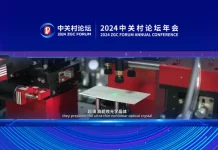The U.S. Commerce Department has a bold new plan to decentralize America’s tech ingenuity. Out of 370 applicants, 31 regional technology hubs have been selected, opening the door for these areas to share in a $500 million federal funding pie. The goal? To spread innovation beyond known tech havens like Silicon Valley and Seattle.
These tech hubs will deal with projects dealing with AI and aircraft
Commerce Secretary Gina Raimondo laid it plain: “People shouldn’t have to move to get a good job.” By spreading the wealth of tech opportunities across the U.S., the government aims to unlock the hidden potential residing in smaller cities and different states. This initiative is more than just a bid to create jobs; it’s a strategic move to diversify the American economy. These hubs won’t just be coding new apps; they’ll work on projects that range from clean energy to artificial intelligence and even next-gen aircraft materials.

The White House isn’t just throwing money at these hubs and hoping for the best. Rather, it’s encouraging public-private partnerships. President Joe Biden sees the government’s role as a catalyst for private investments in sectors like electric vehicle batteries and semiconductors. A broader geographic spread of tech hubs could also attract talent that’s less keen on relocating to the usual tech giants’ playgrounds.
Intriguingly, this initiative isn’t isolated. Earlier this month, the Biden administration announced that $7 billion would be allocated to “hydrogen hubs” across 16 states. These are intended to kickstart a burgeoning industry that could play a big part in a more sustainable future.
But let’s not celebrate just yet. Despite Congress earmarking $500 million for these regional hubs, the funding isn’t guaranteed. Only five to ten of these chosen hubs will eventually get up to $75 million each in the coming year. Only time will tell how that goes.
RELATED:
- Foxconn under fire: Urgent probe in China raises alarms ahead of Taiwan Elections
- China imposes Export Controls on Graphite, rattling EV supply chains amid Global tensions
- Download the best GCam APK for Samsung Galaxy S23 Ultra
(Via)







